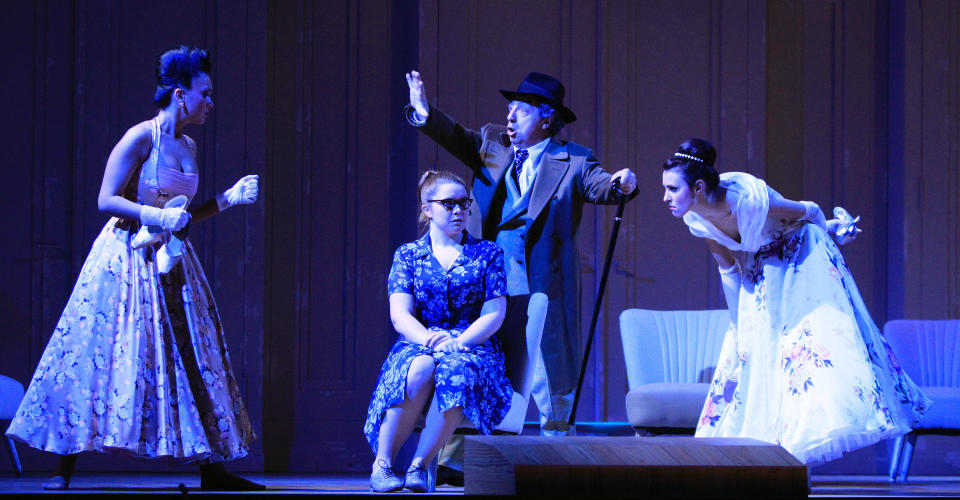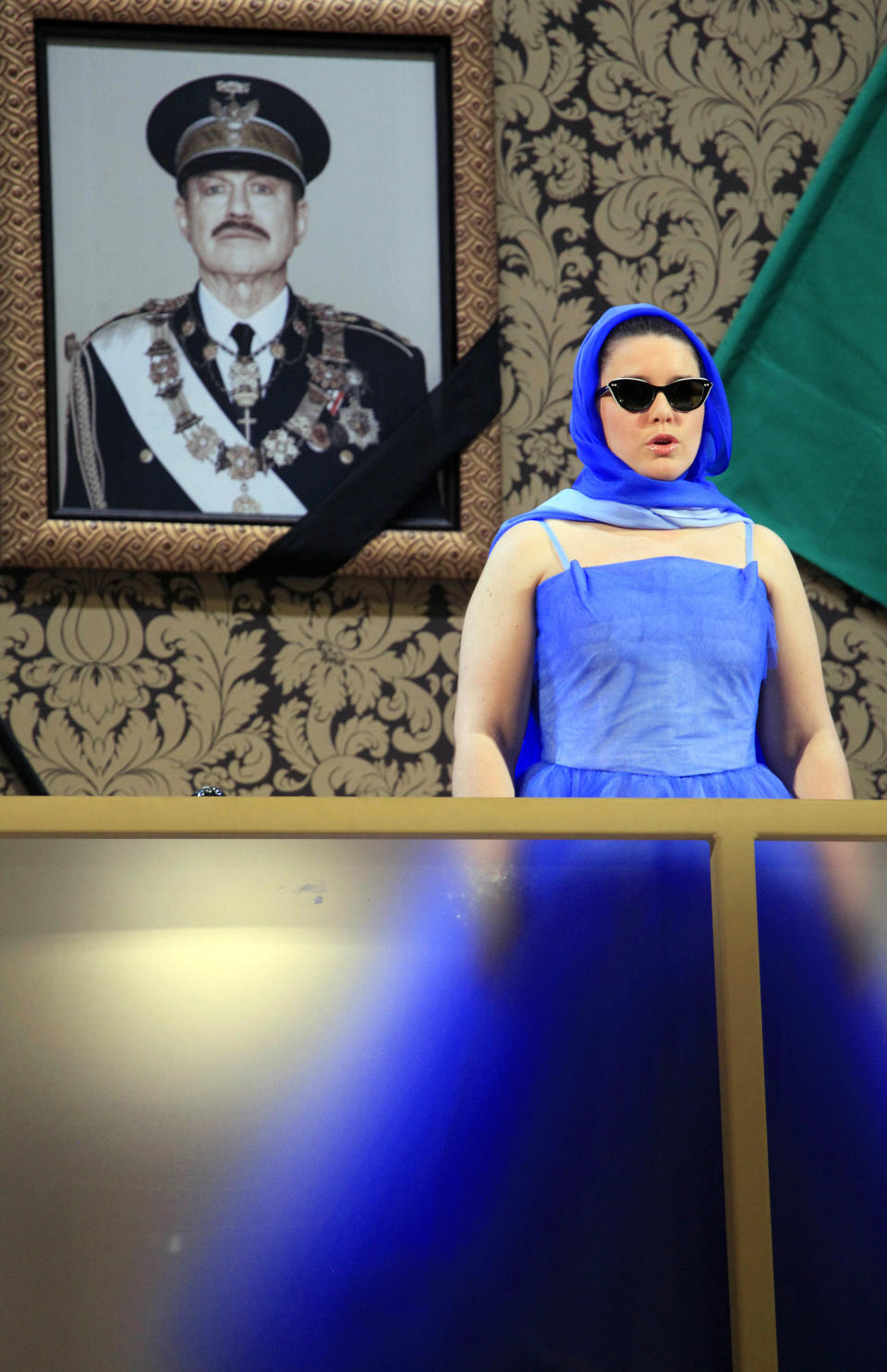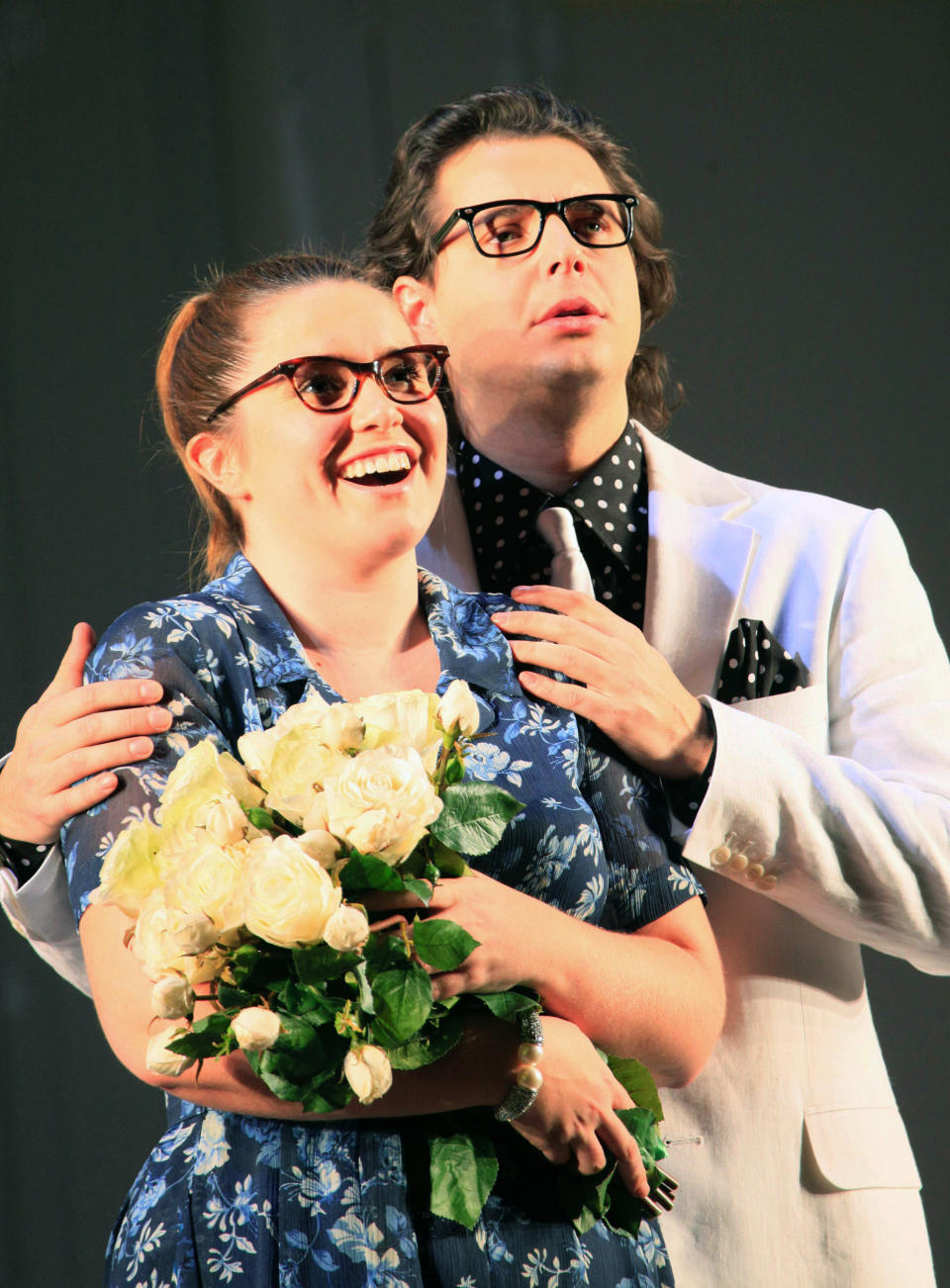New production of Rossini's Cinderella a delight
VIENNA (AP) — There is no pumpkin-turned-coach on the stage, no glass slipper, no fairy godmother, and the action takes place in an imaginary Italian duchy in the 1950s. But Gioachino Rossini's take on Cinderella remains utterly magical in the new version being put on by the Vienna State Opera.
While all operas stand or fall on the quality of their singers, La Cenerentola presents a particular challenge, with solos replete with florid vocalization, full-out crescendos and sustained, flowing melodic lines.
But all soloists passed the test with full honors — and then some — in the production that premiered Saturday.
As Angelina — Rossini's Cenerentola, or Cinderella — mezzo Tara Erraught unleashed an array of coloratura fireworks in a role that affords opportunities for vocal pyrotechnics like few others.
"Non piu mesta" — where Angelina, the prince by her side, announces that she forgives her cruel step-sisters and step-father — is considered one of opera's most difficult arias. No problem for Erraught. Her rendition perfectly mirrored Angelina's transition from a servant singing a simple ditty at the fireside to a princess in full embellished voice.
While he was describing the opera in general terms two centuries ago, feared Vienna critic Eduard Hanslick could have been referring to Erraught's performance when he wrote: "This ... Cinderella is in fact a Cinderella in clothing only; her singing brims over with pearls, velvet and silk."
A hard act to match — and as Don Ramiro, Angelina's prince, Dmitry Korchak was almost equal to the task.
"Almost," only because his light tenor initially threatened to get lost in the orchestra. But Korchak gained in confidence — and his voice in power — effortlessly pinpointing his high C's in "Si ritrovarla io giuro," as he declared that he will find the girl who so enchanted him at the ball, no matter what it takes.
But to do so, he must get past Angelina's step-father, who keeps her in ashes while he plots the prince's marriage to one of his two daughters. As the bumbling Don Magnifico, Alessandro Corbelli was indeed Mr. Magnificent Saturday, bringing the mean and scheming persona to life in a humorously endearing way.
Apropos of mean and scheming: Valentina Nafornita and Margarita Gritskova are beauties visually and vocally but convincingly rotten to the core in their roles as Clorinda and Tisbe, Don Magnificio's preening daughters
Also good — Vito Priante as Dandini, the prince's servant, and Ildebrando D'Arcengelo as Alidoro, the prince's philosopher. As this Cinderella's de-facto fairy godfather, he pulls the strings behind the scenes to bring the story to a happy ending.
But there is no happy ending in any opera unless the orchestra is up to scratch. With Rossini specialist Jesus Lopez-Cobos conducting, musicians of the Vienna State Opera delivered a sparking rendition of a vibrant and complex score. Good singing by members of the Vienna State Orchestra Choir rounded out the evening, in a production as pleasing visually as it was musically.
After the first performance flopped in 1817, Rossini was optimistic proclaiming: "People will love this opera."
They did Saturday.





